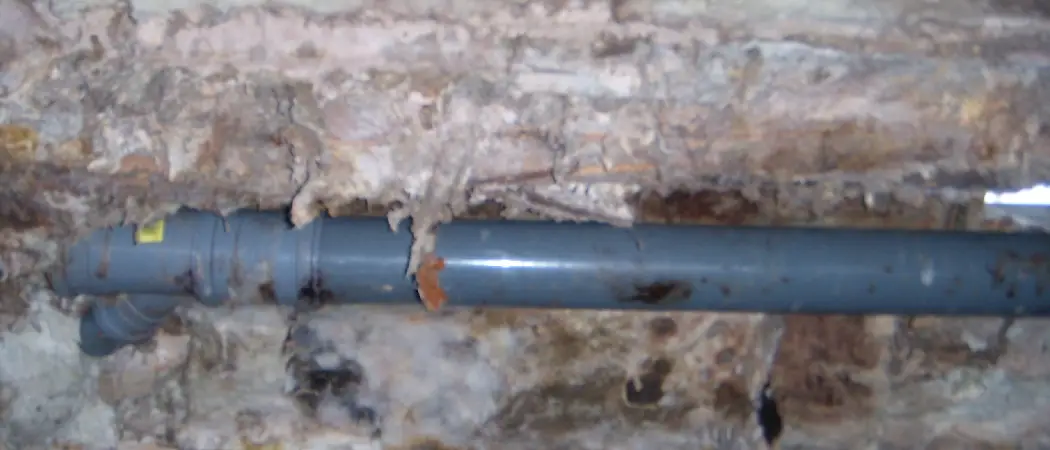Are you a homeowner with aging cast iron sewer pipes? Are you considering replacing them with PVC? With the rise of PVC as a replacement option, it’s natural to have questions about whether or not it’s the best choice for your home.
In this comprehensive guide, we’ll explore the topic in-depth and help you make an informed decision. So, if you’re wondering, “Should I replace cast iron sewer pipe with PVC?” – keep reading to find out!
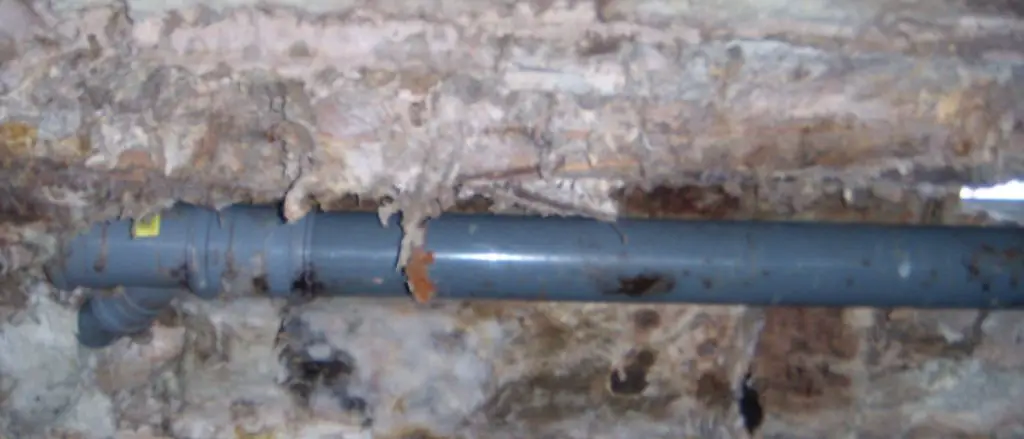
Whether you’re dealing with a clogged or damaged cast iron sewer pipe, this article will provide you with all the necessary information to make the right choice for your home. So, let’s dive in!
Understanding Cast Iron Pipes
History and Lifespan of Cast Iron Sewer Pipes
Cast iron pipes have been used for almost 100 years in the construction of sewer systems. These pipes were very popular at the time due to their durability and strength. However, as with any material, cast iron pipes have a limited lifespan and will eventually need to be replaced. The average lifespan of cast iron sewer pipes is around 30-50 years.
Common Issues with Cast Iron Pipes
Over time, cast iron pipes can be subject to a number of issues. The most common problem is corrosion, which occurs due to the exposure to moisture and chemicals in the sewer system. This corrosion can lead to cracks or holes in the pipe, causing leaks and potential backups.
Another issue is root intrusion, where tree roots can grow into the joints of the pipes and cause blockages. This is especially common in older homes where trees have had more time to grow and their roots have expanded.
Pros of Cast Iron Pipes
Despite their age, cast iron pipes do have some advantages. For one, they are incredibly sturdy and can withstand a lot of pressure and weight. They are also fire-resistant, making them a safer option for homes.
Understanding PVC Pipes
History and Lifespan of PVC Pipes
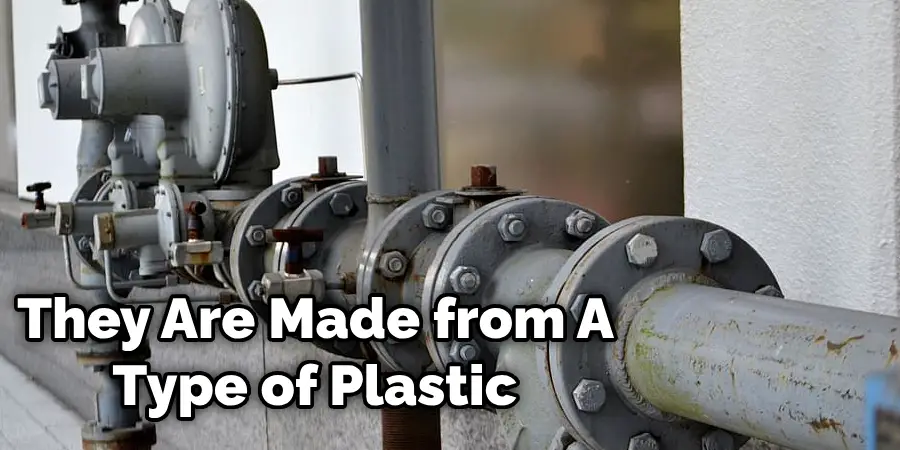
PVC, or polyvinyl chloride, pipes have been around since the 1950s but have gained popularity in recent years as a replacement option for cast iron pipes. They are made from a type of plastic and have an average lifespan of 50-100 years.
Common Issues with PVC Pipes
While PVC pipes have a longer lifespan than cast iron, they are not invincible. They can be subject to damage from extreme temperatures or heavyweight. Also, if the pipes are not properly installed, they could be prone to leaks and cracks.
Pros of PVC Pipes
One of the main advantages of PVC pipes is their smooth interior surface, which allows for better flow and less potential for clogs. They are also lightweight, making them easier to install and less expensive than cast iron pipes.
The Problem with Aging Cast Iron Sewer Pipes
Safety Concerns
As cast iron pipes age, they become more susceptible to leaks and cracks. This can lead to water damage in your home and create a potential health hazard with the presence of mold and bacteria.
Costly Repairs
Once a cast iron pipe starts to have issues, it will need to be repaired or replaced. This can be a costly and time-consuming process, especially if there are multiple pipes that need attention.
Potential for Property Damage
If a cast iron pipe fails completely, it can cause significant damage to your property and disrupt your daily life. This is particularly concerning for homeowners who live in older homes with aging sewer systems.
Should I Replace Cast Iron Sewer Pipe with PVC: Exploring PVC Pipes as a Replacement
When deciding whether or not to replace your cast iron sewer pipes with PVC, there are a few factors to consider.
Age of Your Home
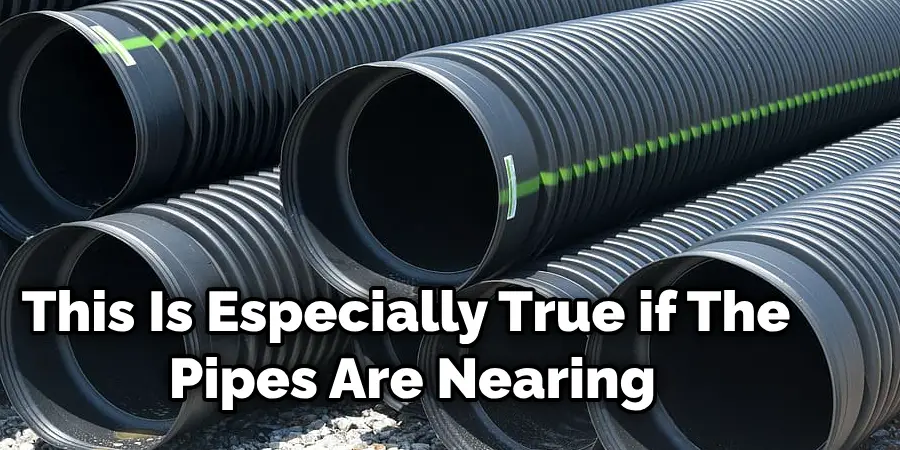
If you live in an older home with original cast iron pipes, it may be time to consider replacing them. This is especially true if the pipes are nearing or have exceeded their average lifespan.
Budget
PVC pipes are generally less expensive than cast iron, making them a more budget-friendly option for homeowners.
Long-Term Maintenance and Repairs
While PVC pipes may have a longer lifespan than cast iron, they still require maintenance and repairs. It’s important to consider the long-term costs and potential inconvenience of dealing with aging PVC pipes.
Consultation with a Professional
Ultimately, the best way to determine whether or not you should replace your cast iron pipes with PVC is to consult with a professional plumber. They can assess the condition of your current pipes and provide expert advice on the most suitable replacement option for your home.
Overall, the emerging thought you-“should I replace cast iron sewer pipe with PVC?” is yes; if your home is older and you’re facing constant repairs and maintenance with cast iron pipes, consider PVC as a more durable and cost-effective option may be the right choice for you. However, it’s always best to consult with a professional before making any major decisions. So weigh out the pros and cons of both options discussed in this guide, and make an informed decision that is best for your home and budget.
Weighing the Decision: Other Major Factors to Consider
Environmental Impact
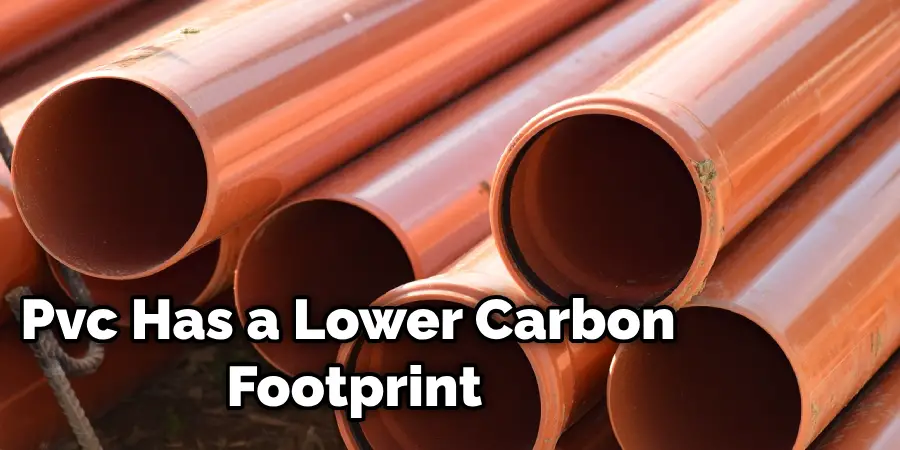
When it comes to the environmental impact, PVC pipes have a slight advantage over cast iron. While both materials can be recycled, PVC has a lower carbon footprint during production and is generally more energy-efficient.
Building Codes and Regulations
Before making any changes to your home’s plumbing system, it’s important to check with your local building codes and regulations. Some areas may have restrictions or guidelines on the type of materials that can be used for sewer pipes.
Personal Preference
At the end of the day, it’s important to consider your own personal preferences and needs. Some homeowners may prefer the traditional look and feel of cast iron pipes, while others may opt for the modern functionality and cost-effectiveness of PVC pipes.
In summary, both cast iron and PVC pipes have their own set of advantages and disadvantages. It’s important to thoroughly research and consider all factors before making a decision, and consult with a professional if needed.
In-Depth Comparison: Key Characteristics
Durability
Cast iron pipes are known for their strength and durability, while PVC pipes may be more prone to damage from extreme temperatures or heavyweight. However, with proper installation and maintenance, both materials can last for many years.
Installation Process
The installation process for cast iron pipes can be more labor-intensive and time-consuming compared to PVC pipes, which are lightweight and easier to handle. This can also affect the overall cost of the project.
Maintenance
PVC pipes may require less maintenance overall, but they can still develop issues over time. Cast iron pipes, on the other hand, may need more frequent maintenance and repairs due to their aging and potential for corrosion.
Cost
As mentioned earlier, PVC pipes are generally less expensive than cast iron. This makes them a more budget-friendly option for homeowners looking to replace their sewer pipes.
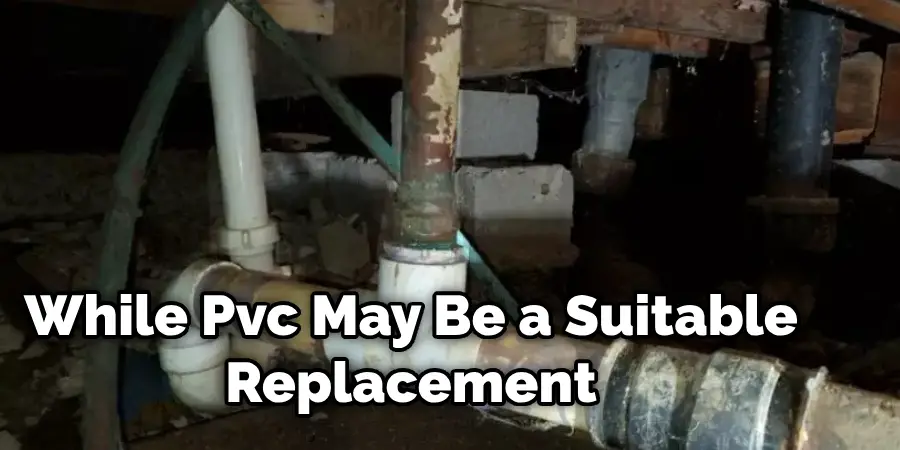
In conclusion, while PVC may be a suitable replacement for cast iron sewer pipes, it ultimately depends on the individual circumstances and needs of each homeowner. It’s important to carefully consider all factors before making a decision and consult with a professional for expert advice.
Additional Considerations for Specific Scenarios
Slab leaks
For homes with a concrete slab foundation, replacing cast iron pipes can be a difficult and costly process. In this case, using PVC pipes may be a more feasible option as they can be installed without having to break through the concrete.
Rural Areas
In rural areas where the soil composition may be different or prone to shifting, PVC pipes may be a better choice as they are less likely to crack or break under pressure.
Historic Homes
For homeowners living in historic homes, replacing cast iron pipes with PVC may not be an option due to preservation and restoration concerns. In this case, it’s best to consult with a professional on alternative solutions for repairing or maintaining the existing cast iron pipes.
Sewer Line Breaks
In the event of a sewer line break, PVC pipes may be easier and quicker to repair or replace compared to cast iron pipes. This can save homeowners time and money in emergency situations.
While there is no one-size-fits-all answer to whether or not you should replace your cast iron sewer pipes with PVC, it’s important to thoroughly research and consider all factors before making a decision.
Long-Term Planning and Preventative Measures
Regular Inspections
Regardless of the material used, it’s important to schedule regular inspections for your sewer pipes to catch any potential issues early on and prevent major damages or costly repairs.
Proper Maintenance
Proper maintenance is crucial for extending the lifespan of any type of sewer pipe. This includes measures such as keeping them clear of debris and avoiding flushing items that can clog the pipes.
Consider Future Renovations
If you are planning on renovations or additions to your home in the near future, it may be wise to consider replacing your cast iron pipes with PVC beforehand. This can save you time and money in the long run, as well as ensure a more efficient plumbing system for your home.
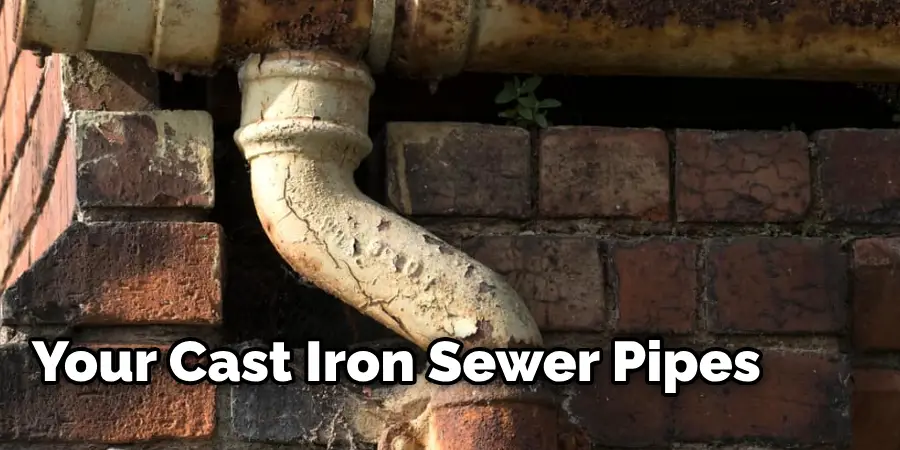
Overall, making the decision to replace your cast iron sewer pipes with PVC should be based on careful consideration and evaluation of all factors involved. With the right research and professional guidance, you can make an informed decision that is best for your home and budget.
The Role of Professional Plumbing Services in Cast Iron to PVC Pipe Replacement
Hiring a professional plumbing service is crucial when it comes to replacing your cast iron sewer pipes with PVC. These professionals have the knowledge, experience, and equipment necessary to complete the project safely and effectively.
Proper installation is key in ensuring the longevity and efficiency of your new sewer pipes. Professional plumbers are trained in proper installation techniques for both cast iron and PVC pipes and can also provide valuable insights and recommendations based on your specific plumbing system and needs.
In addition, professional plumbing services can also assist with obtaining necessary permits and ensuring compliance with local building codes and regulations. This helps to ensure a smooth and hassle-free process for the homeowner.
Overall, enlisting the help of a professional plumbing service can make all the difference in successfully replacing your cast iron sewer pipes with PVC. It is always recommended to consult with a professional before making any major changes to your plumbing system.
Conclusion
The transition from cast iron to PVC sewer pipes is a significant decision facing many homeowners. This comprehensive guide has laid out the critical aspects of durability, installation process, maintenance, cost, and particular considerations for different scenarios. The final verdict lies in weighing the immediate and long-term benefits, the specific needs of the property, and the local regulations.
Regular inspections, diligent maintenance, and prudent planning are the cornerstones of a robust sewer system, regardless of the material. Engaging professional plumbing services ensures expert advice, precise installation, and compliance with codes, ultimately safeguarding your investment.
As we wrap up this exploration, homeowners are encouraged to examine their circumstances thoroughly, consult professionals, and make an informed decision that aligns with their home’s integrity and their financial planning. Thanks for reading this article about “Should I replace cast iron sewer pipe with PVC?”

